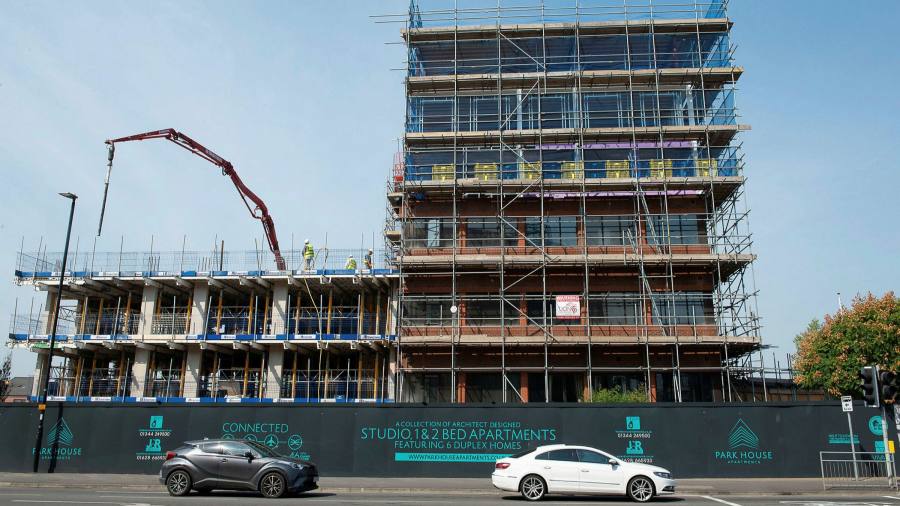[ad_1]
As hundreds of thousands of Hong Kongers contemplate swapping their lives under an increasingly authoritarian regime for England’s supposedly green and pleasant land, estate agents are peddling yet-to-be-built apartments that are ever further from London and other city centres.
Estate agents do not waste an opportunity and Britain’s offer of a path to citizenship for residents of its former colony hands them just that. Hong Kong money has long washed into UK property, accounting for a tenth of Savills’ London new home sales, as well as other hotspots such as Sydney and Vancouver.
But those buyers were generally rich enough to pay a seven-figure sum for a London flat. Many bought for investment, or as homes for student offspring. The new arrivals lack that luxury. Instead, spooked by the passing of a sweeping national security law last June, and the subsequent imprisoning of pro-democracy activists, many are seeking refuge — or at least the opportunity to live in a more open society.
With far less to spend than their predecessors, they have to look beyond prime London locales. Even favoured university haunts — Oxford, Cambridge, Edinburgh — are being superseded by less familiar names.
Hence Slough — a town that poet John Betjeman deemed unfit for humans — has been rebranded as a perfect commuter town and “investment hotspotâ€. But for many even Slough is a pipe dream. The median monthly household income for Hong Kongers was under HK$29,000 (now about $3,700) in 2019. Two-fifths had under HK$25,000.
Even with cash in hand and the government’s British National (Overseas) visa, relocation is fraught with practical difficulties. It is difficult to sign a tenancy agreement without a bank account in the country, for example, or to open an account without a permanent address. Human rights activists report that some of those coming from Hong Kong resort to Airbnbs.
Impenetrable red tape is just one of the issues left unresolved as Britain faces what social entrepreneur Krish Kandiah calls “the largest planned immigration to the UK since the Windrush generationâ€. Kandiah, cognisant of the hostile reception that met arrivals from the Caribbean in the postwar years, is one of a group of Britons offering to help steer migrants through the maze of legal, educational, health and everyday practicalities.
The Windrush immigrants were not even furnished with paperwork. More support — largely via the Uganda Resettlement Board — was in place when refuge was granted to Asians expelled by then president Idi Amin in 1972. This time, “civil society is going to have to take up the slackâ€, says Luke de Pulford, a human rights campaigner. “The BN(O) passport will open the gates at Heathrow and there will be nothing for them, no [resettlement] plan.â€
Newly-landed migrants and asylum seekers can often count on community networks for aid and guidance. Plenty of overseas Chinese organisations have set up platforms to help, but the political divide that triggered the UK scheme has migrated too. The latest wave of Hongkongers has met with a hostile reception from some Chinese, says Jabez Lam of Hackney Chinese Community Services. Lam, a longtime UK citizen originally from Hong Kong, has himself been attacked by mainlanders in London’s Chinatown and warns of the Communist party’s growing tentacles in the country.
When the Ugandan Asians arrived in the 1970s, unemployment was at nearly 10-year highs and racial tensions were rife. Fast forward half a century and the UK has just racked up its worst recession in 300 years, millions are on furlough and blame for the pandemic has fanned anti-Chinese resentment.
The government estimates there will be about 300,000 arrivals from Hong Kong over five years — roughly 10 times the number of Asians who landed in Britain from Uganda in the early 1970s. But there are signs that some of these would-be immigrants, spooked by tales of difficult resettlements, are already having second thoughts. Their fears mean the true number of those who take up the UK’s offer could be far lower than thought.
[ad_2]
Source link






